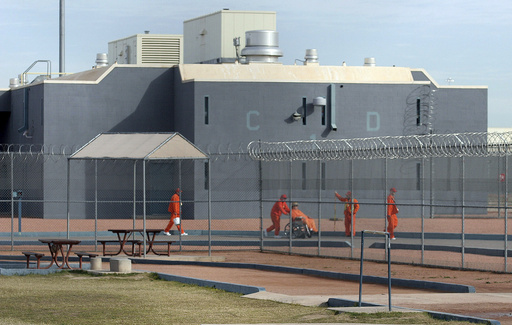
PHOENIX — Legal representatives for 25,000 prisoners in Arizona are urging a judge to assume control of health care services in state-operated prisons and to appoint someone to manage them. They argue that the state has been unable to address significant shortcomings in care for over a decade, despite being required to make improvements.
In a court filing made on Tuesday, the attorneys emphasized the immediate necessity of such a takeover, citing a lack of adequate leadership within the Arizona Department of Corrections, Rehabilitation and Reentry to adopt the reforms mandated by a judicial ruling stemming from a 2012 lawsuit concerning the quality of medical and mental health services for inmates.
The legal representatives pointed out that a constitutional violation was first identified in 2015, asserting that “A decade later, defendants still have not shown the will, knowledge, or capacity to reform their prison healthcare system.” Although Arizona reached a settlement in 2014, it continued to face numerous complaints about failing to uphold its commitments. As a result, the court imposed contempt fines, totaling $1.4 million in 2018 and $1.1 million in 2021, and ultimately revoked the settlement due to the state’s lack of compliance, leading to a new trial.
In a damning verdict in 2022, U.S. District Court Judge Roslyn Silver determined that the state was infringing on prisoners’ constitutional rights by failing to provide essential medical care. This disregard had persisted for years, and the state had refused to implement necessary changes. Judge Silver noted that deficiencies in prison health care had led to preventable fatalities and mandated corrections authorities to address these constitutional breaches.
In September 2019, the legal team representing the prisoners had previously sought a receivership, which is a formal takeover by the court. Although Judge Silver was initially hesitant to grant this, she later indicated that she would revisit the option if the state demonstrated bad faith or failed to meet the court-ordered reforms.
Prisoners’ lawyers referenced a recent report from a court-appointed specialist, which stated that healthcare for inmates “remains poor, has shown little improvement since the start of the injunction, and continues to place residents at significant risk of serious harm, including death.” Requests for comments from the corrections department and the office of Democratic Governor Katie Hobbs went unanswered after the filing.
Receiverships have previously been enacted in prisons across other states, such as California, where a federal judge took control of the prison medical system in 2005, citing an alarming rate of inmate deaths due to medical neglect or malpractice. It is important to note that the Arizona lawsuit does not pertain to nearly 10,000 individuals held in private prisons for state convictions.

